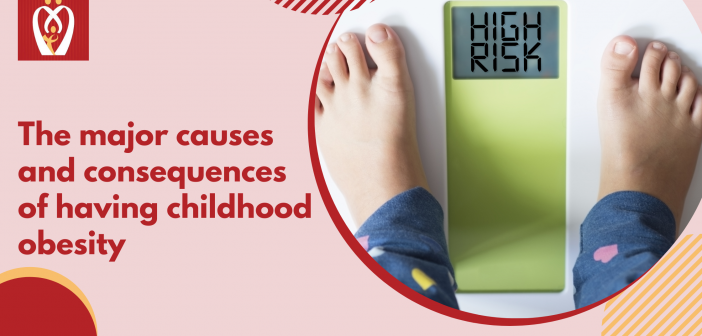Childhood obesity is defined as having a BMI greater than or equal to 95 percent of the BMI for their age group. To determine your “weight status,” the BMI is a useful tool to have. Your height and weight are used to calculate your BMI. You can determine your BMI percentile based on your gender and age (where your BMI falls in comparison to other people). This can be done via the child BMI calculator on the PinkBook app.
The poor diet choices of their parents are leading to an increasing number of obese children. Obese children are more than just fat; they are at risk for a variety of long-term health conditions. Obesity-related health problems can persist into adulthood.
Not only does obesity harm the physical health of children, but If you’re overweight or obese, you’re also more prone to depression and low self-esteem as well.
How Childhood Obesity Affects a Child’s Health
Childhood obesity is the result of a combination of genetic, psychological, and environmental factors. Obesity is more prevalent in families where one or more members are overweight or obese. Obesity in children is most commonly caused by a combination of excessive caloric intake and insufficient physical activity.
Unhealthy weight gain can also be caused by convenience foods like frozen meals, salty snacks, and canned pasta. Some children end up being overweight when parents don’t know how to select or prepare healthy foods. Due to a lack of financial resources, fresh fruits, vegetables, and meats may be out of reach for some families.
Obesity in children can also be caused by a lack of exercise. When people are less active, they tend to gain weight. Exercise burns calories, which helps you maintain a healthy weight and body mass index. Sports, time on the playground, and other forms of physical activity can help children burn more calories than when they aren’t encouraged to participate.
As a result of mental health issues, some children are more likely to become obese. Children and teenagers who are bored stressed, or depressed may eat more in an effort to alleviate their negative feelings.
Health Consequences of Childhood Obesity
Obese children are more likely to suffer from health issues than their peers who are in good health. These include diabetes, heart disease, and asthma.
Diabetes
When your body doesn’t properly process glucose, you have type 2 diabetes. Children with diabetes have an increased risk of developing eye, nerve, and kidney disease. Type 2 diabetes is more common in overweight children and adults. However, it is possible to reverse the condition by changing one’s diet and lifestyle.
Heart Attacks
Obese children who have high cholesterol and high blood pressure are more likely to develop heart disease in the future. Food items that are high in fat and salt may raise cholesterol and blood pressure. Cardiovascular disease can lead to a heart attack or a stroke.
Asthma
Inflammation of the airways in the lungs is known as asthma. Asthma and obesity are often found together, but the exact mechanism by which they are connected is still a mystery to researchers. According to a study, people with obesity may be more susceptible to asthma.
Anxiety and insomnia
Sleep apnea and excessive snoring can be symptoms of obesity in children and adolescents. Airways can become obstructed by excess weight around the neck.
Painful Joints
Excess weight can cause your child to suffer from joint stiffness, pain, and restricted mobility. Weight loss can often alleviate joint pain.
Obesity in Children: A Guide to Eating Well and Staying Healthy
Adolescents who are overweight or obese must have their eating habits re-evaluated. Your child’s eating habits are shaped by your influence as a parent. If you want your kids to eat healthily, you have to start with yourself.
Reduce the availability of sugary drinks and sweets in your household as the first step toward a healthier diet. Even drinks made entirely from fruit juice have the potential to be extremely calorific. Instead, offer your children water or low-fat or non-fat milk as a beverage option. Make a conscious effort to eat lesser fast foods and cook more. To get some quality time with your family, you can’t beat making and eating a nutritious meal together.
Instead of processed foods, baked goods, or salty snacks, make most of your meals and snacks from fresh ingredients. Wholesome foods such as fresh fruits and vegetables, lean meats like chicken and fish, whole grain products like brown rice, pasta, and bread, and low-fat dairy products, such as skim milk, plain yogurt, and cheese, are all wonderful choices.
Changing to a more healthful diet is likely to result in your overweight or an obese child losing some weight. Consult your pediatrician if weight loss does not take place. A nutritionist or dietician may be able to provide additional assistance.
The Nurturey PinkBook app is an amazing way to track your child’s health. With features like the BMI calculator, timeline, vaccination tracker and so much more, we make sure you and your child lead a healthy life!
